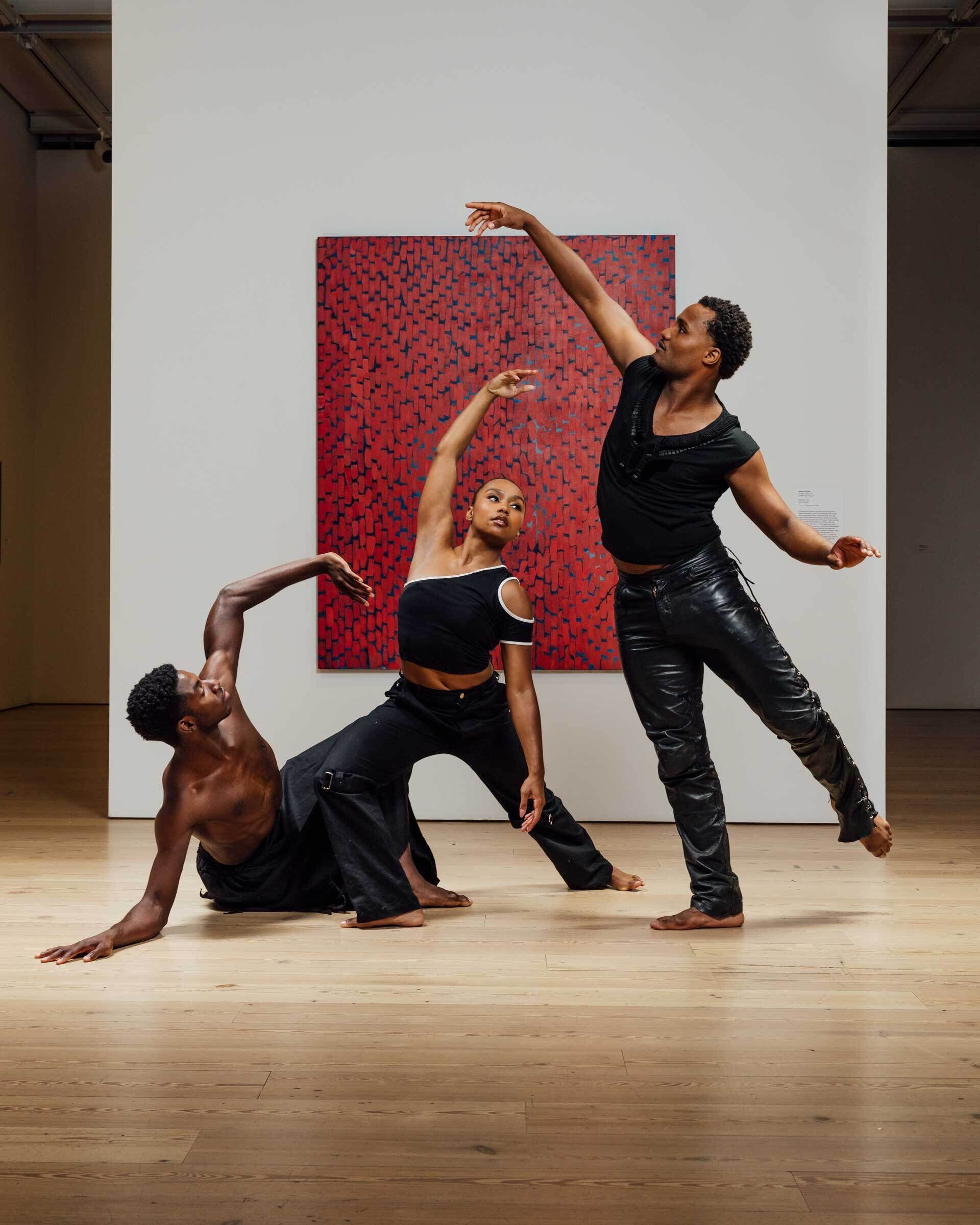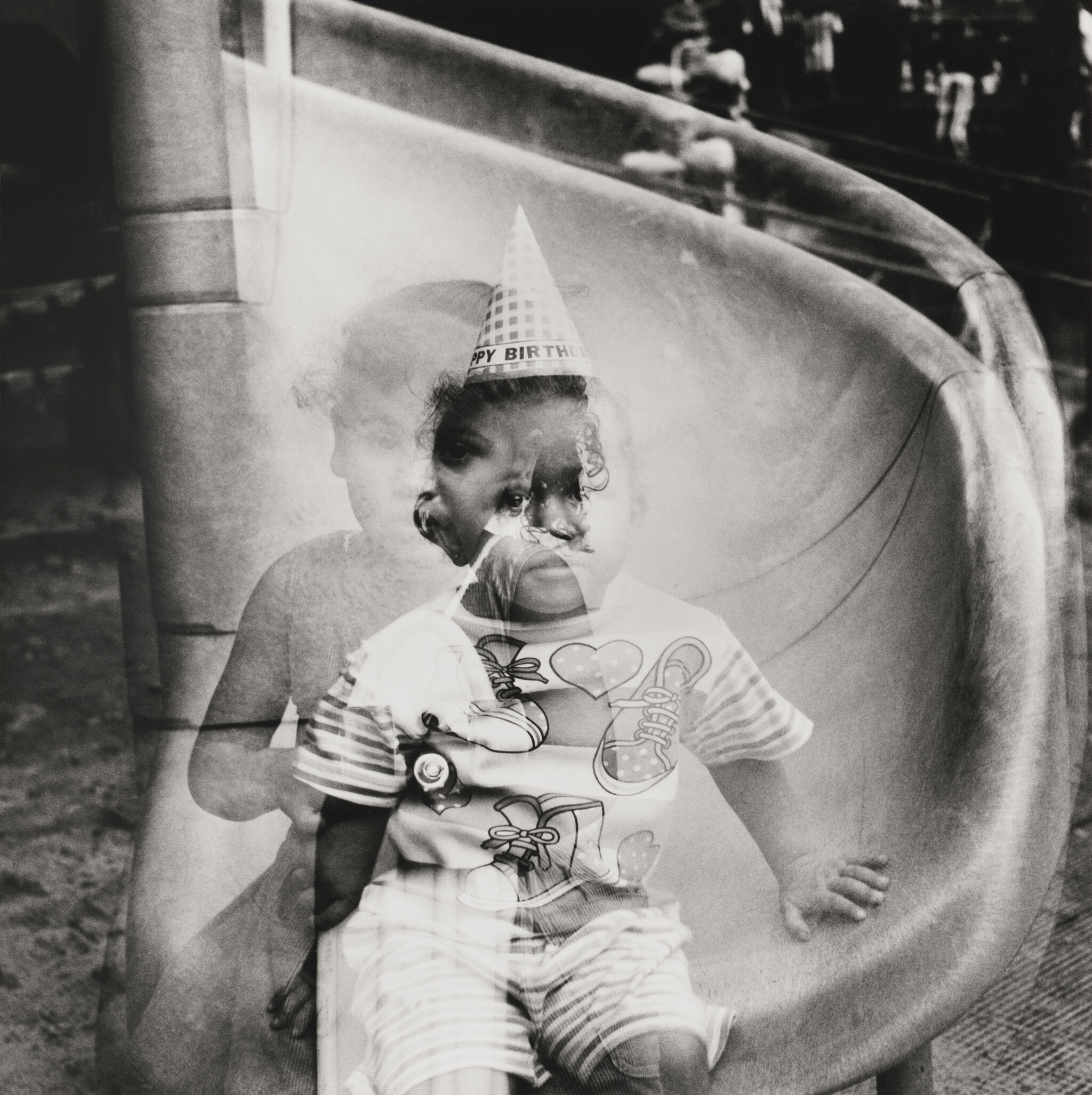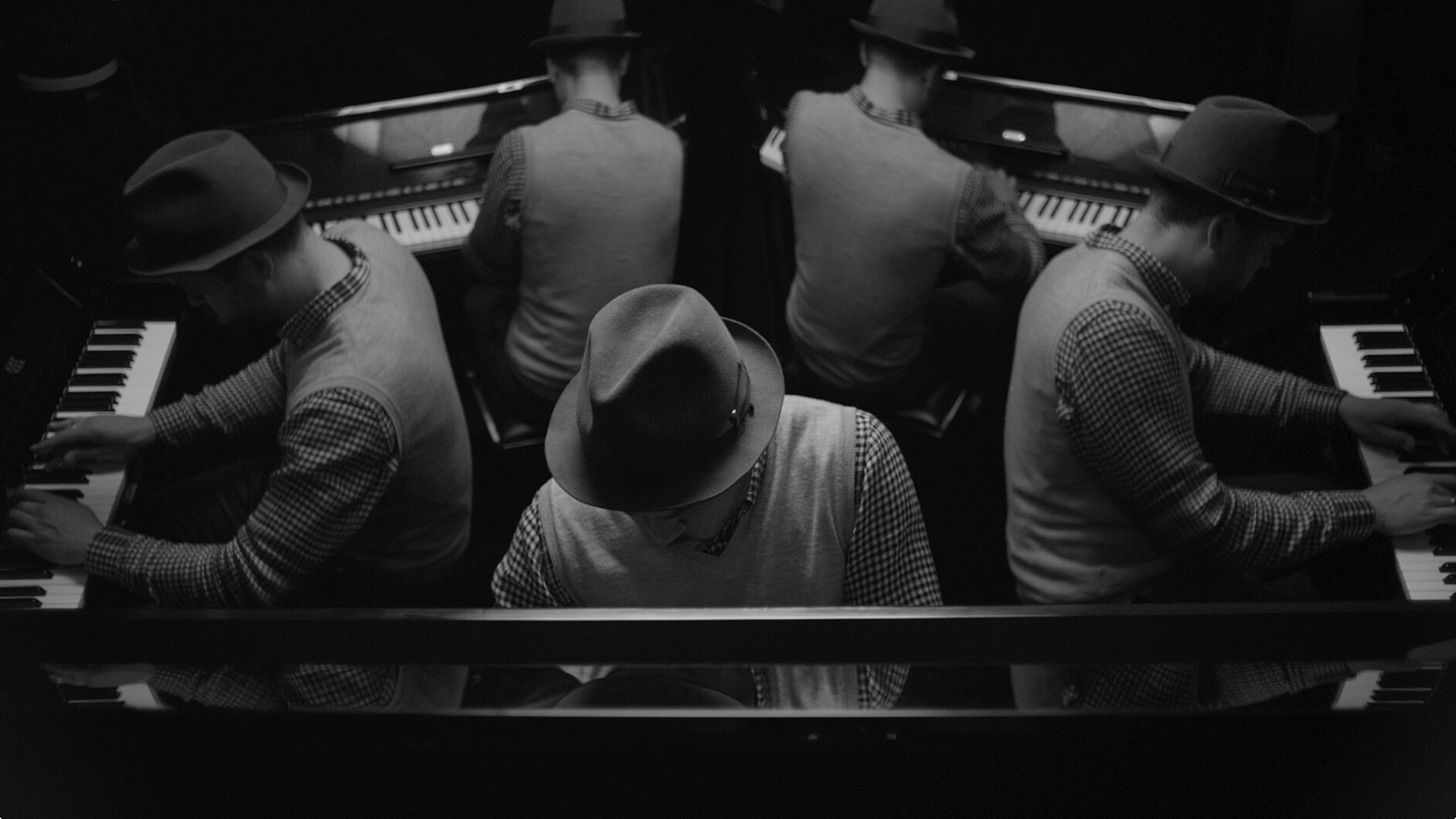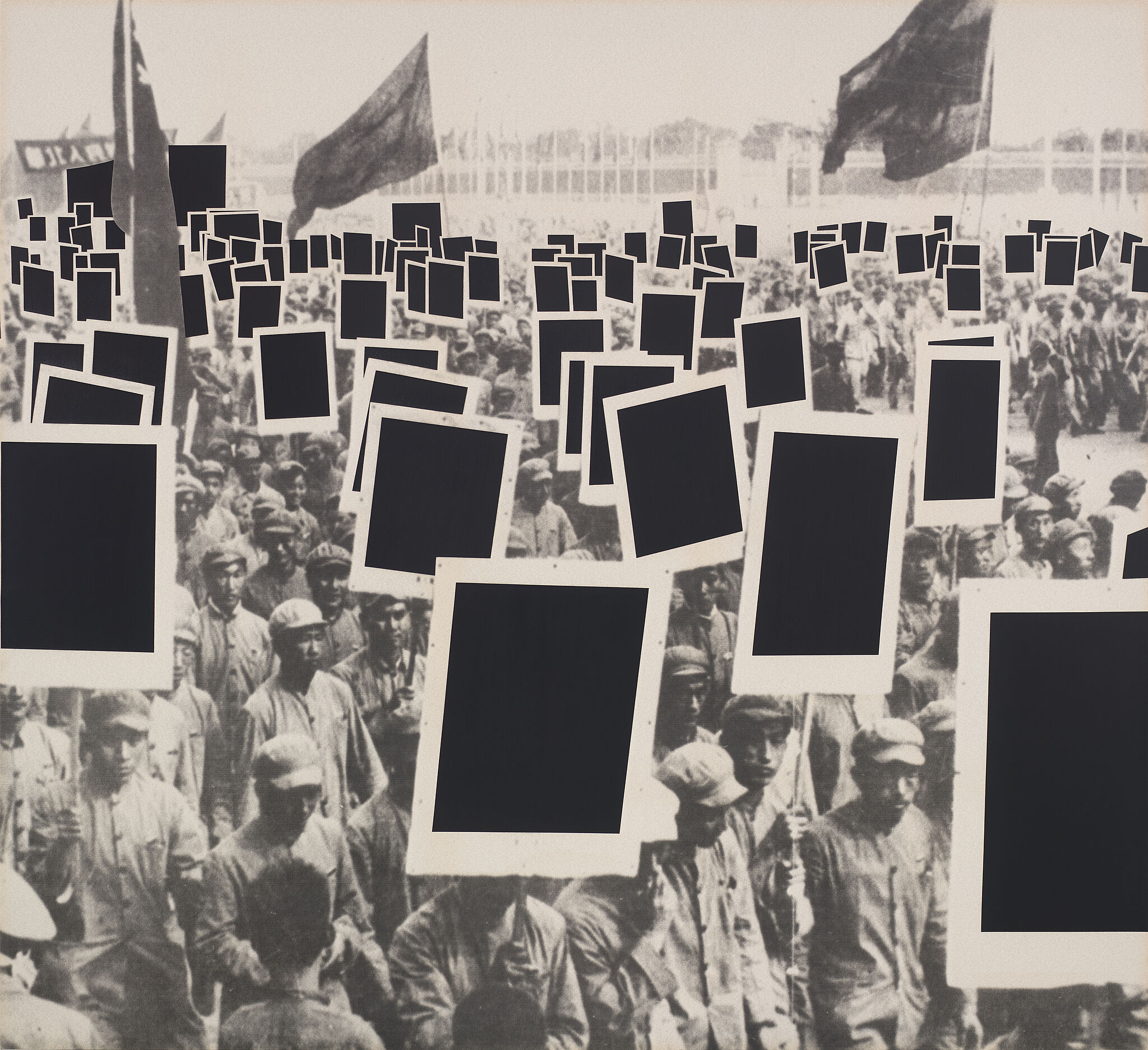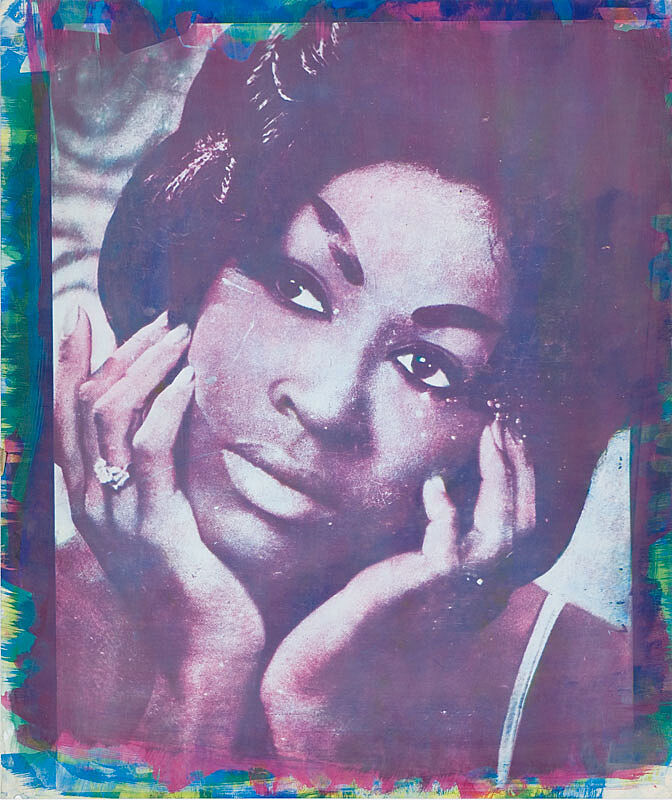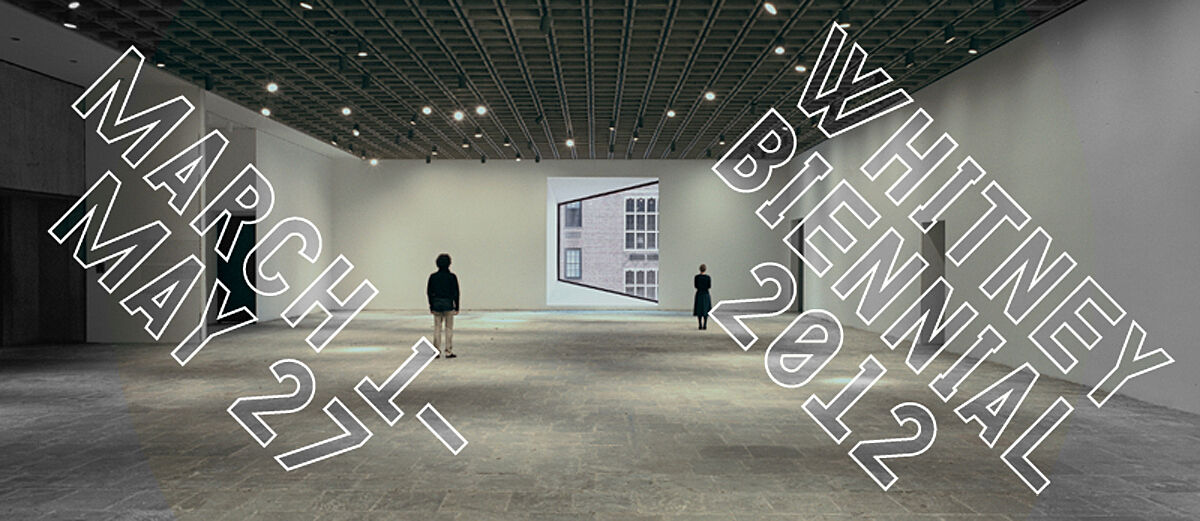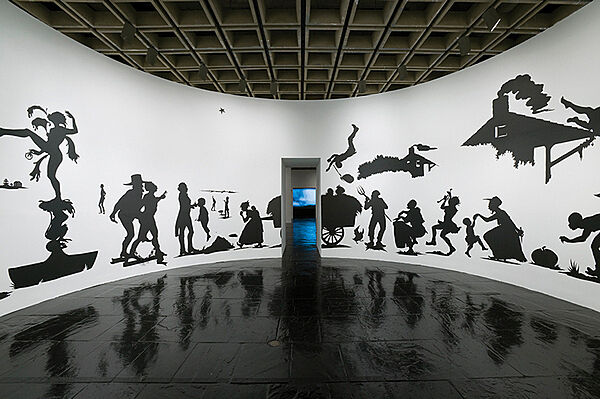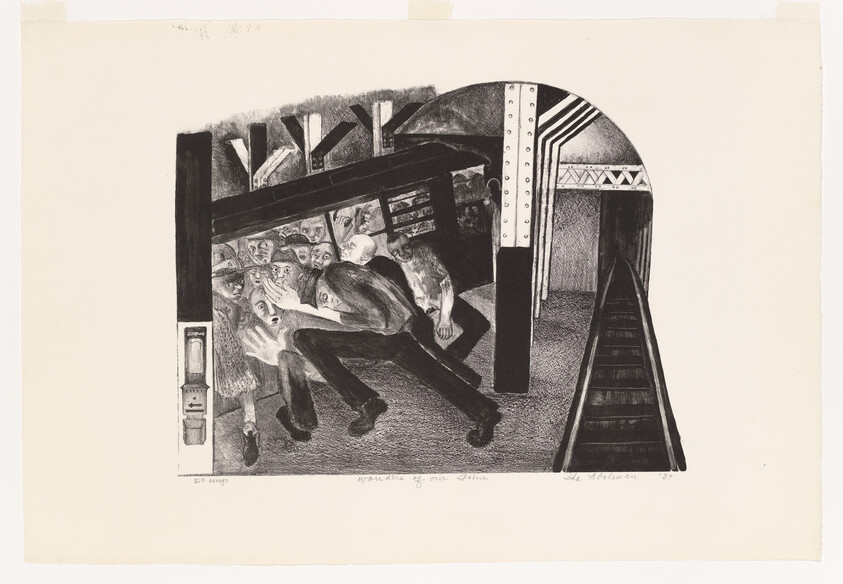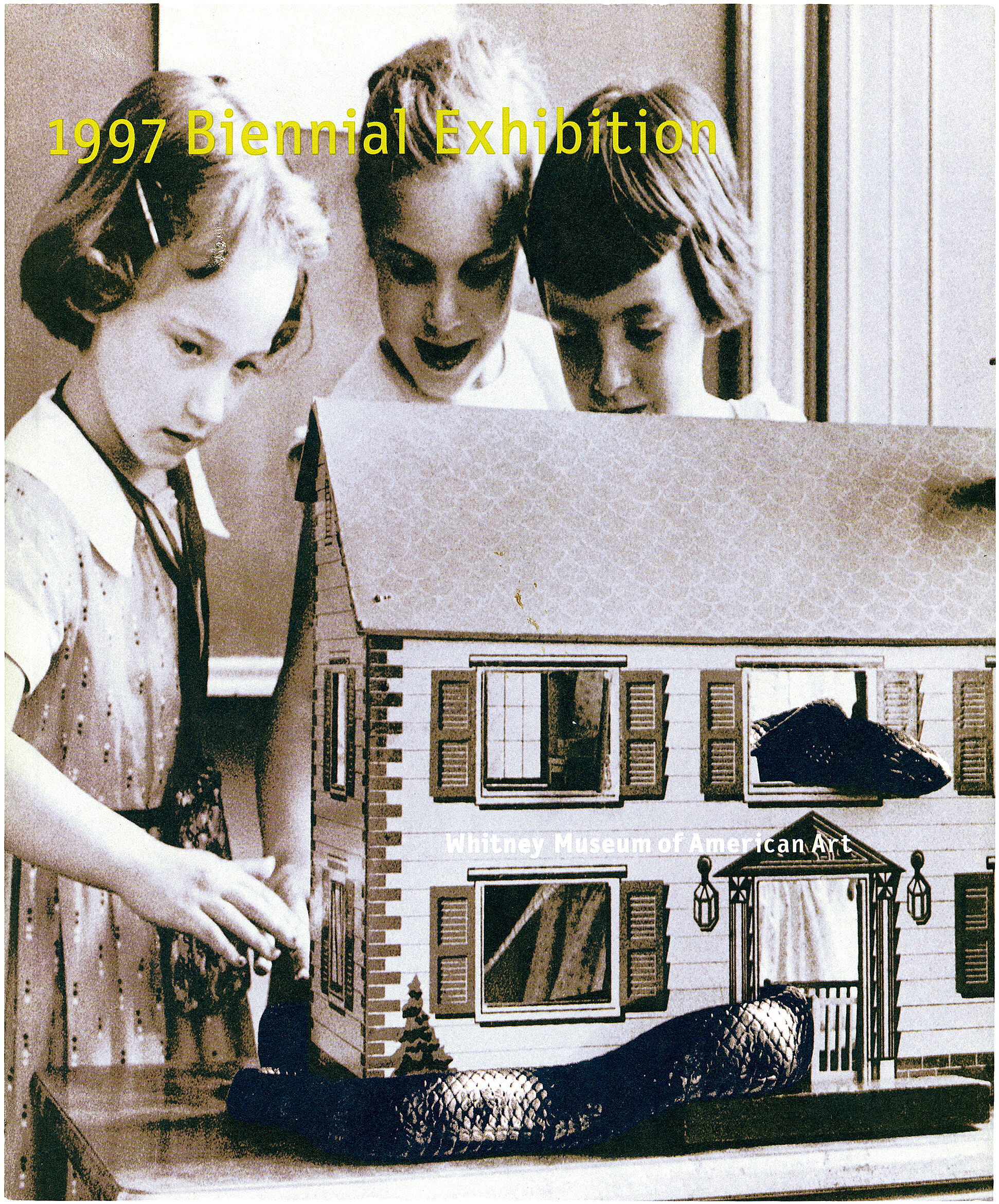Kara Walker
1969–
Since rising to prominence in the mid-1990s, Kara Walker has used silhouette cutouts as a signature element in her large-scale tableaux and projections. Yet her appropriation of this popular nineteenth-century portrait technique diverges starkly from its genteel roots. Drawing on sources that include American slave narratives, the literature of the antebellum South, and minstrel shows, her works examine racist and sexist stereotypes as well as issues of identity, narrative representation, violence, and desire. Walker has likened placing the viewer in the center of these historical retellings to “creating a monster that swallows you.”
In Mistress Demanded Swift and Dramatic Empathetic Reaction Which We Obliged Her, paper cutouts and colored gels are cast from an overhead projector onto the wall of a dark room. The images call to mind historical attractions such as shadow puppetry and silent-era animation techniques pioneered by German artist Lotte Reiniger. Instead of fairy tales, however, Walker’s projection reveals a gruesome scene in which a small African American girl plunges a machete into the abdomen of a bound “mistress.” An onlooker’s head is trapped in a grotesque metal contraption, and his hands and feet are in shackles. Although the scene seemingly represents a slave rebellion or escape, nothing in it suggests redemption. Rather, Walker’s hard-hitting depictions aim to confront us with imagery that, as she has put it, undermines “all our fine-tuned, well-adjusted cultural beliefs.”
Each of the fifteen prints in her portfolio Harper’s Pictorial History of the Civil War (Annotated), features a lithographic enlargement of an illustration from a popular history book published by Harper’s Weekly in 1866 that Walker has “annotated” with screenprinted silhouettes. The placement and contours of the silhouettes often highlight particular elements of the original imagery. Exodus of Confederates from Atlanta features a silhouette outline within a silhouette that calls attention to an African American boy piling up belongings for white civilian evacuees. In Alabama Loyalists Greeting the Federal Gun-Boats, an oversized silhouette of a woman becomes part of the action; she appears to have been knocked down by Union supporters rushing to greet the northern warships. Although Walker’s interventions obscure much of the detail in the source imagery, they foreground an African American presence that had been minimized or ignored in the originals, underscoring an ongoing bias in popular media representations of newsworthy events. As she has explained, “as long as there are people saying ‘Hey, you don’t belong here’ to others, it only seems realistic to continue investigating the terrain of racism.”
Dana Miller and Adam D. Weinberg, Handbook of the Collection (New York: Whitney Museum of American Art, 2015), 392–393.
Introduction
Kara Elizabeth Walker (born November 26, 1969) is an American contemporary painter, silhouettist, printmaker, installation artist, filmmaker, and professor who explores race, gender, sexuality, violence, and identity in her work. She is best known for her room-size tableaux of black cut-paper silhouettes. Walker was awarded a MacArthur fellowship in 1997, at the age of 28, becoming one of the youngest ever recipients of the award. She has been the Tepper Chair in Visual Arts at the Mason Gross School of the Arts, Rutgers University since 2015.
Walker is regarded as among the most prominent and acclaimed Black American artists working today.
Wikidata identifier
Q444277
Information from Wikipedia, made available under the Creative Commons Attribution-ShareAlike License . Accessed February 12, 2026.
Introduction
Known for her nearly life-sized silhouettes of stereotypical slave narratives that explore race relations and its history through jolting yet whimsical pictorial means; included in the 1997 Whitney Biennial.
Country of birth
United States
Roles
Artist, book artist, installation artist, painter, paper artist, serigrapher, silhouette artist
ULAN identifier
500123343
Names
Kara Walker, Kara Elizabeth Walker
Information from the Getty Research Institute's Union List of Artist Names ® (ULAN), made available under the ODC Attribution License. Accessed February 12, 2026.

